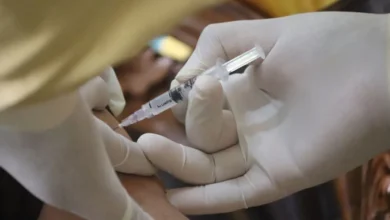Study Reveals 20% Increase in Weight Loss Surgeries among Adolescents

Weight-loss surgeries among adolescents have seen a significant increase in recent years, reflecting the overall surge in obesity treatments across the United States.
According to a research letter published in the Journal of the American Medical Association, Pediatrics, the number of adolescents aged 10 to 19 undergoing metabolic or bariatric surgery rose by approximately 20% in 2021 compared to the previous year. Interestingly, while rates for adults declined, these surgeries, which are relatively uncommon among minors, also experienced an increase between 2019 and 2020.
This rise in weight-loss surgeries among adolescents coincides with the growing concern among healthcare professionals regarding obesity rates in both adults and children. Medical organizations such as the American Academy of Pediatrics have advocated for expanded access to weight-loss surgeries and medications to address youth obesity.
However, the practice of performing weight-loss surgeries on young people has sparked controversy and raised questions about the appropriateness of medical intervention at such ages and the potential for excessive aggressiveness among clinicians.
According to the Centers for Disease Control and Prevention, nearly 20% of children and adolescents in the US live with obesity, a condition associated with diseases like type 2 diabetes and heart disease.
Metabolic and bariatric surgeries involve modifying the stomach and intestines to facilitate weight loss by reducing food intake and altering the body’s food absorption processes. Only around 1% of eligible individuals undergo these surgical procedures, largely due to barriers such as cost. Among those who opt for weight-loss surgery, adolescents make up a small fraction of the overall group.
Sarah Messiah, a professor at the University of Texas Health Science Center at Houston and one of the authors of the research paper, acknowledges that bariatric surgery has not been widely accepted or embraced by the pediatric community or pediatricians. However, she highlights that the overwhelming evidence shows the effectiveness of these procedures in helping adolescents lose weight and improve their overall health. This has prompted some pediatricians to reconsider their stance on the matter.
The researchers attribute the increase in weight-loss surgeries among adolescents to a 2019 statement by the American Academy of Pediatrics that called for improved access to these procedures, stating that evidence supports their use even in young individuals.
In January, the American Academy of Pediatrics released comprehensive guidelines on obesity treatments for children and teenagers, including recommendations for weight loss drugs and evaluations for surgery in teenagers with severe obesity. Sandra Hassink, a former president of the AAP, emphasized that there is no evidence supporting the notion of “watchful waiting” or delayed treatment for children with obesity.
The growing recognition of the effectiveness of weight-loss surgeries in adolescents, combined with the rising rates of youth obesity, has led to a shifting perspective among medical professionals and organizations. While controversies persist, the need to address obesity-related health risks in young people has prompted a more proactive approach to weight loss in this population.






